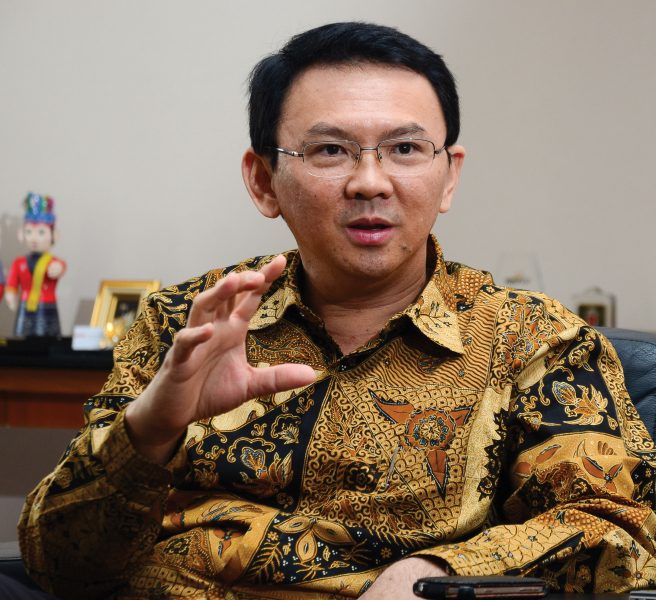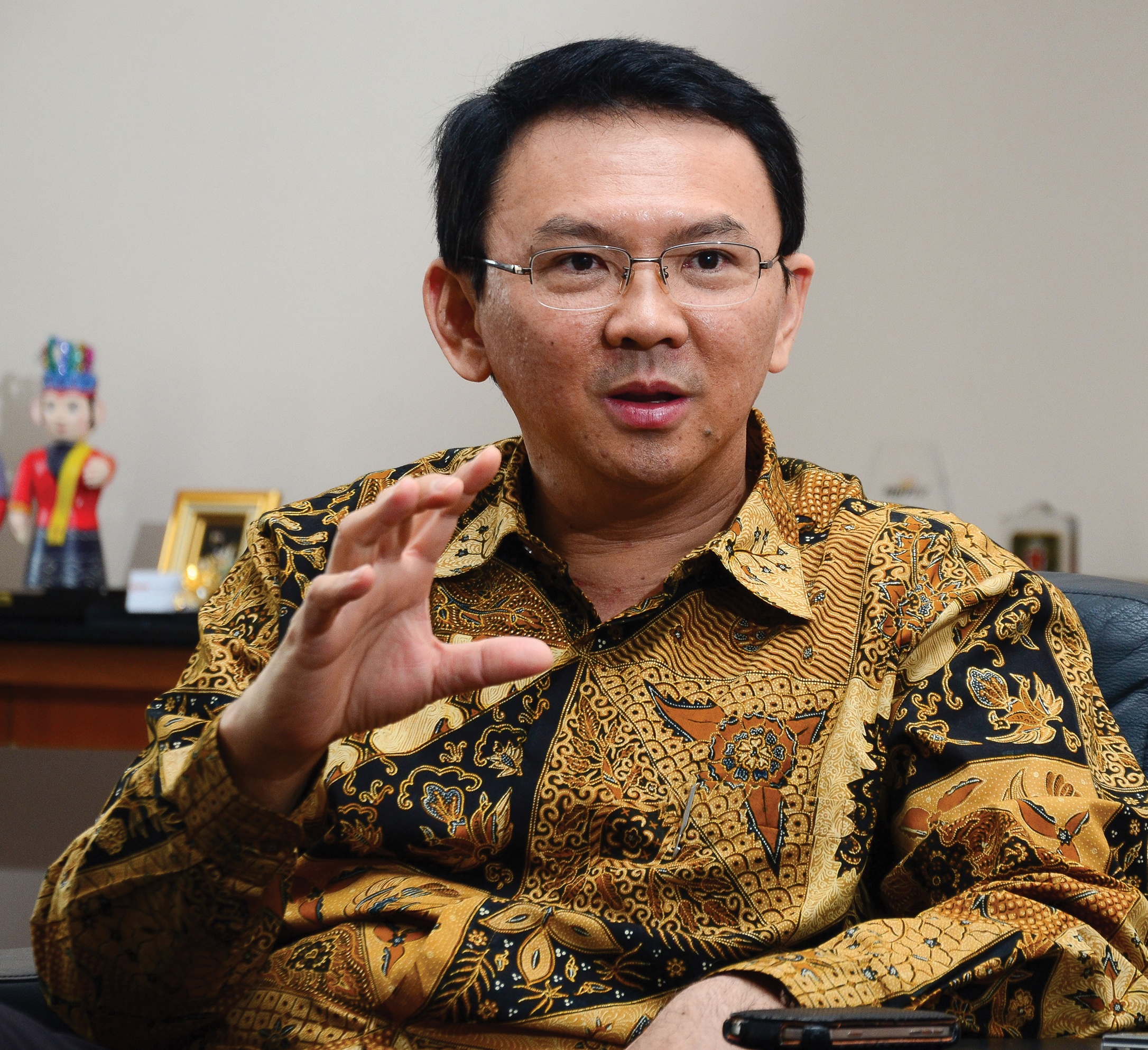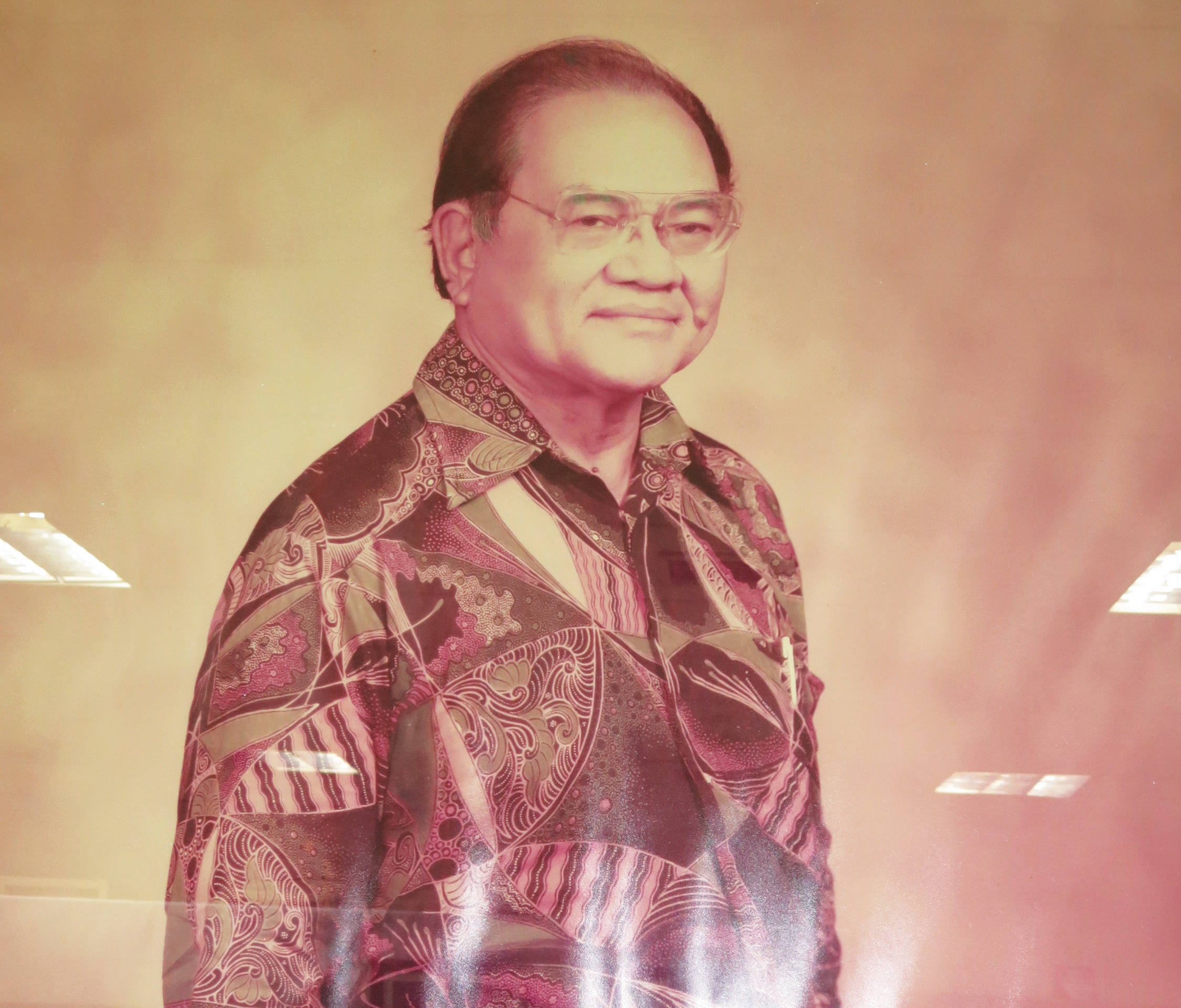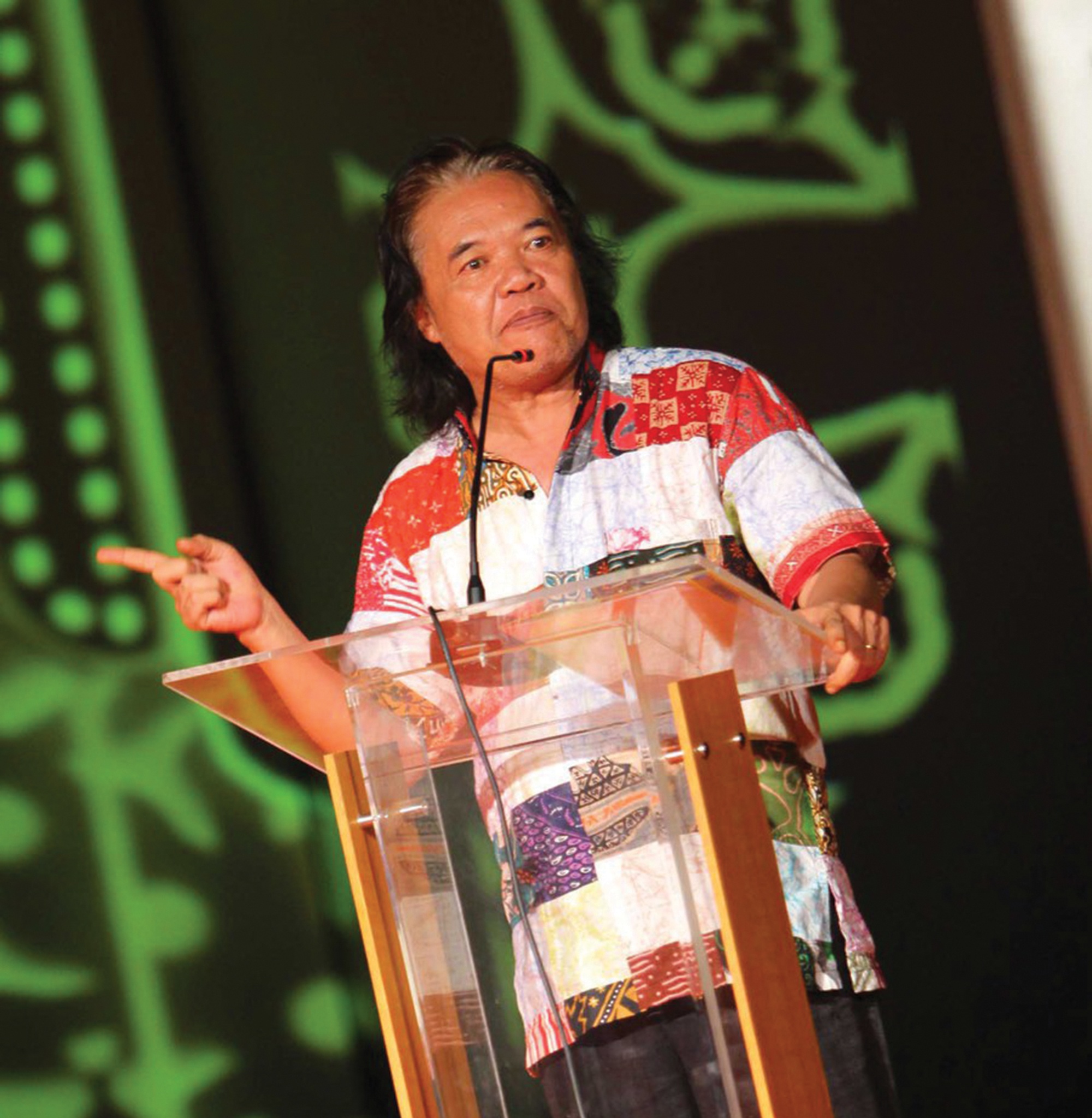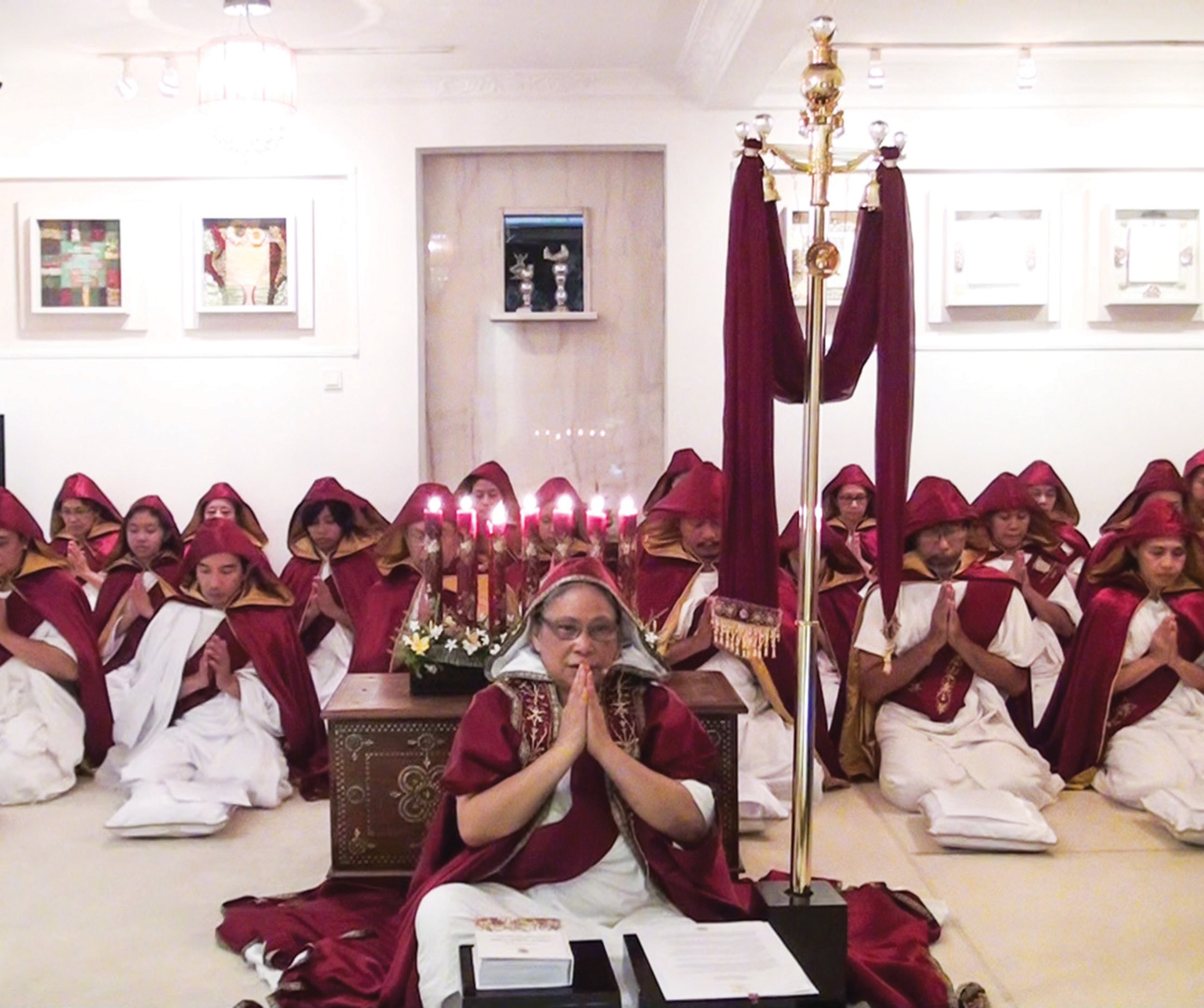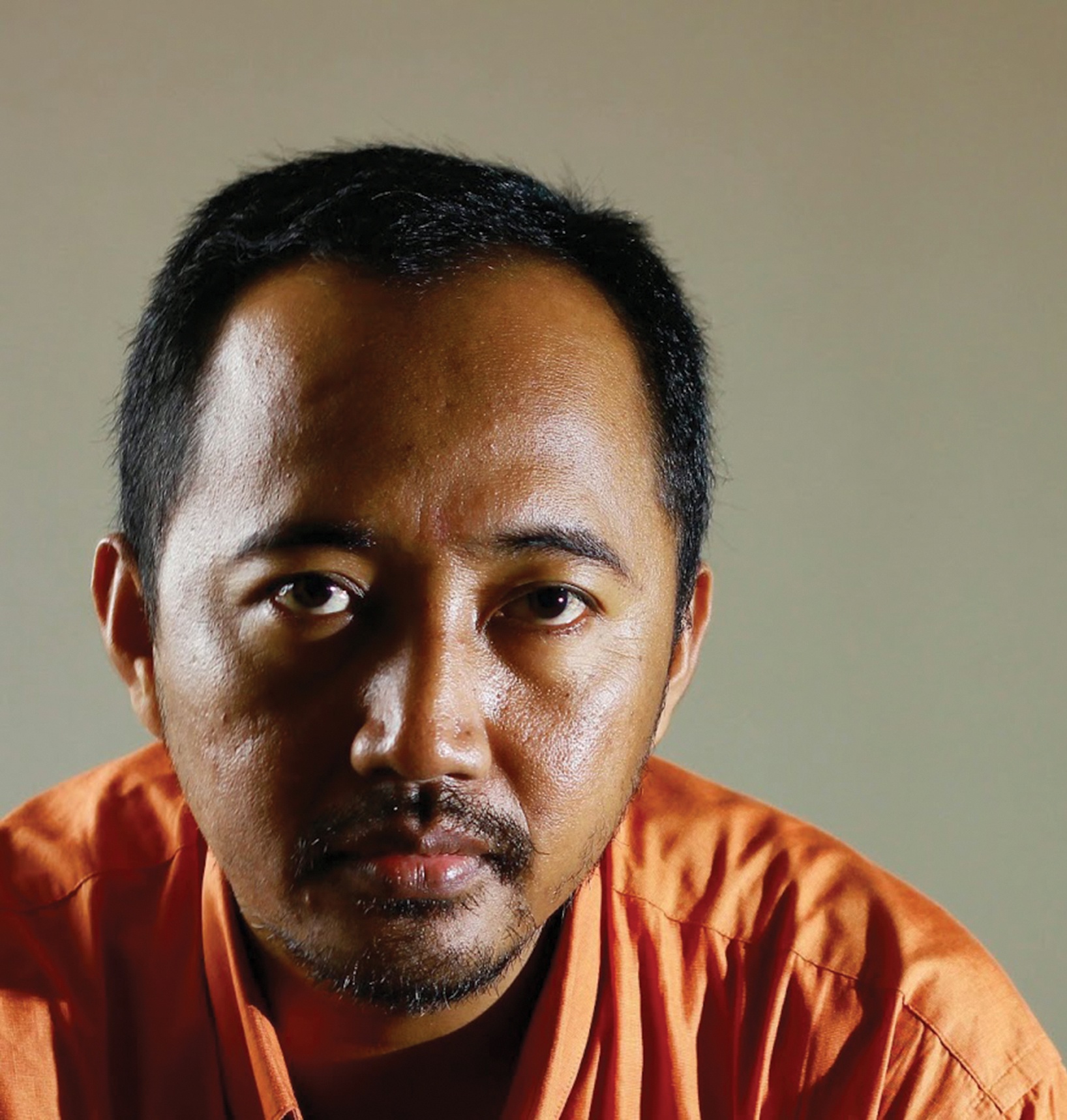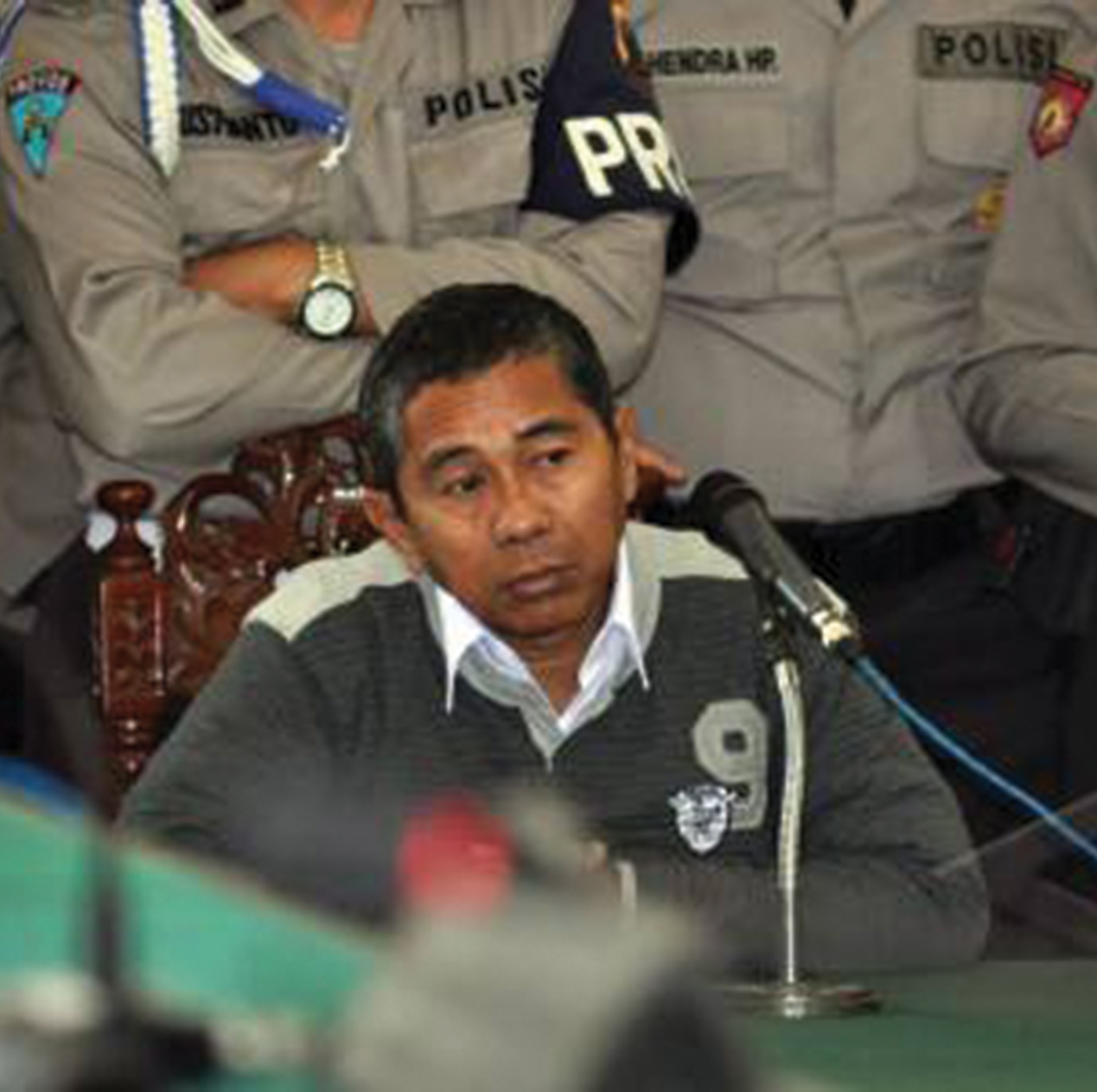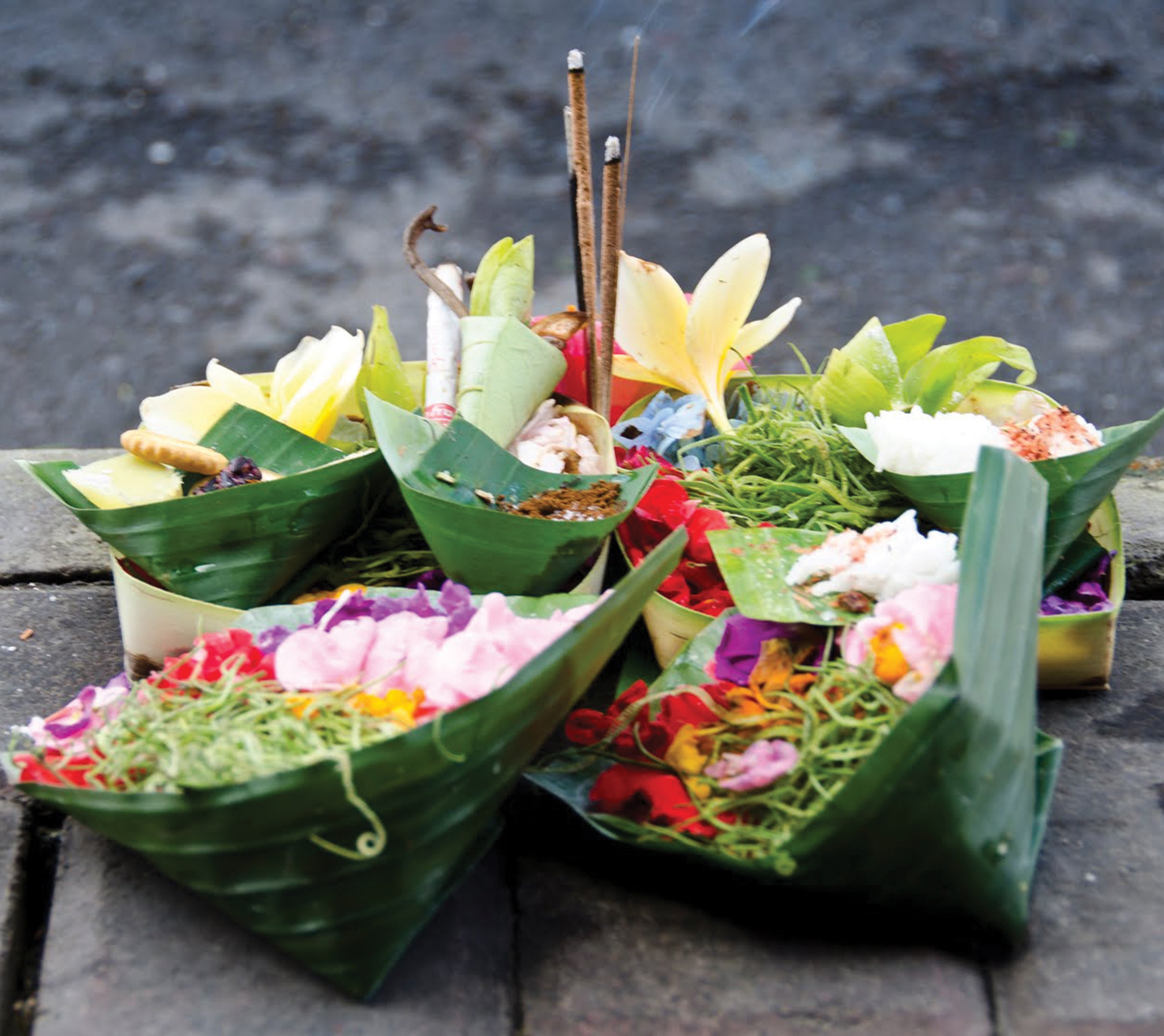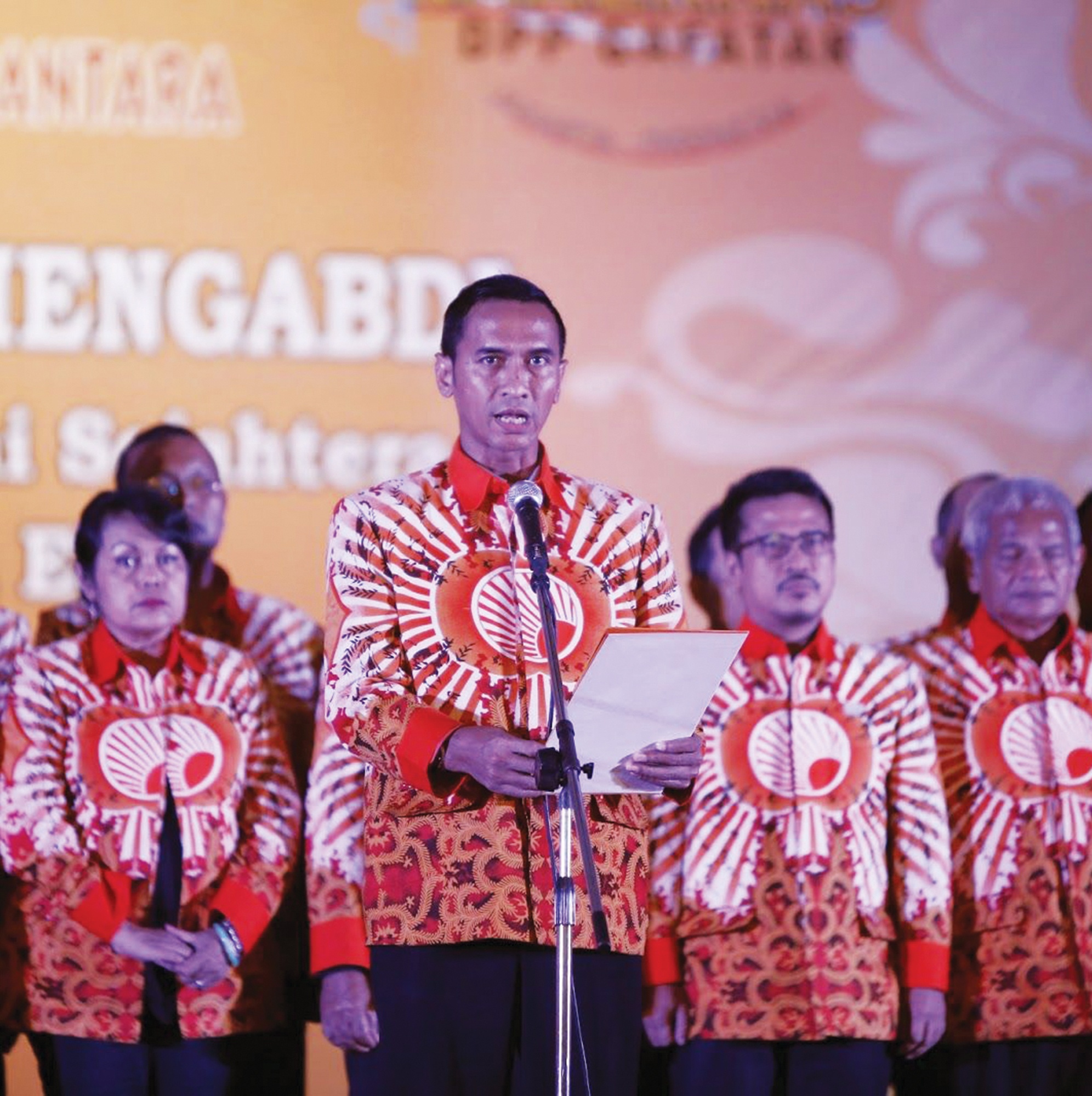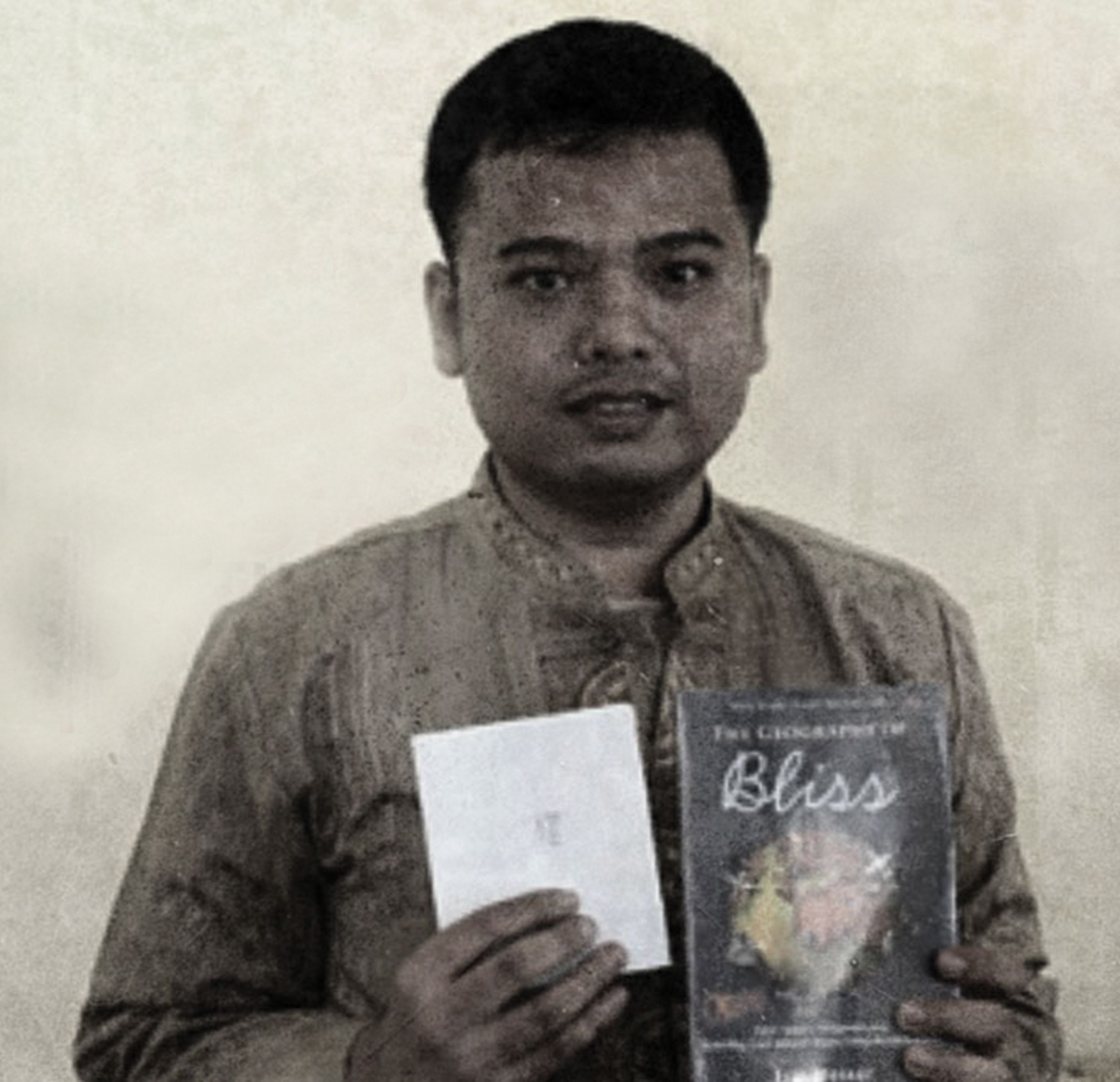You’ve got to have faith in a nation where religion is compulsory. And it has to be one of the accepted faiths.
- Ahok
Jakarta Governor
Basuki Tjahaja “Ahok” Purnama (52) was one of Jakarta’s most outspoken and high-achieving governors. He significantly improved infrastructure and services from 2014 to 2017. His efforts to stop rampant corruption earned him powerful enemies. Some of his rivals fanned the flames of racism and religious intolerance, as Ahok is ethnic Chinese and a Christian. In September 2016, Ahok made a speech in which he mentioned he thought his opponents were misusing a verse of the Quran to warn people they would go to hell if they voted for a non-Muslim. Part of the speech was later uploaded on social media and Ahok was accused of insulting Islam. With the Jakarta governorship being a springboard for the presidency, huge crowds were mobilized to demand Ahok be jailed or killed. In May 2017, he was sentenced to two years in jail.
- H.B. Jassin
Writer and editor
H.B. Jassin (1917–2000) was the editor of Sastra literary magazine. He was the first person convicted of blasphemy in Indonesia. In August 1968, his magazine published a short story about the Prophet Muhammad and Archangel Gabriel visiting Earth, where they discovered that Muslims were fornicating and suffering in Indonesia because of founding president Sukarno’s policies. By 1968, Suharto had formally replaced Sukarno as president. Keen to gain the support of Muslim groups, Suharto had Jassin arrested for blasphemy. In 1971, Jassin received a one-year jail sentence and two years’ probation. After that, the blasphemy law was ignored for a couple of decades until the early 1990s, when Suharto used it to gain support from conservatives and suppress his opponents. Following the fall of Suharto in 1998, more than 100 blasphemy cases have been processed in Indonesia.
- Arswendo Atmowiloto
Chief Editor of Monitor tabloid
On October 15, 1990, the Jakarta-based weekly TV, film and gossip tabloid Monitor published the results of a readers’ poll on “the 50 Most Admired Persons”. President Suharto came in at number one. But the Prophet Mohammad ranked only 11th. Cue massive protests. Monitor, with a circulation of over 700,000, was Indonesia’s top-selling tabloid. Its publishing license was quickly revoked. Chief editor Arswendo Atmowiloto (69), who was part of the Catholic-run Kompas-Gramedia Group, was sentenced to five years in jail. The poll makes fascinating reading. Sukarno was ranked third, singer Iwan Fals fourth, Iraqi President Saddam Hussein seventh, Arswendo himself was tenth, Soviet leader Mikhail Gorbachev 21st, Mother Teresa 33rd and Margaret Thatcher 37th.
- Lia Eden
Cult leader
Lia Eden (70) is the founder of a Jakarta-based cult called God’s Kingdom of Eden. She claims to be the reincarnation of Mother Mary and that her son is the reincarnation of Jesus Christ. In 2015, she wrote a 38-page letter to President Joko Widodo, requesting permission for a spaceship piloted by the Archangel Gabriel to land at Jakarta’s National Monument. The ship was to take her followers to another planet, where they could restart civilisation without mainstream religions. Lia was convicted of blasphemy in 2006 and sentenced to two years in jail after calling for the abolition of Indonesia’s official religions. In 2009, she received a two-and-a-half year sentence for a similar offense. Lia in 1998 proclaimed herself to be Imam Mahdi – an Islamic prophet who is prophesised to appear during the final years of Earth to restore peace and justice.
- Tajul Muluk
Shiite preacher
About 99 percent of Indonesian Muslims follow the Sunni version of the religion. Tajul Muluk (47) follows the Shia version, whose followers have come under increasing persecution in Indonesia in recent years. Tajul, who lived on Madura Island off East Java, preached that Muslims should pray only three times a day, rather than five times. He also promoted contract weddings and claimed the Koran is not authentic. That upset some mainstream Muslims, including one of his brothers. In December 2011, a mob of anti-Shia protesters attacked and burned down Tajul’s Islamic school compound. In July 2012, Sampang District Court sentenced Tajul to two years in jail for insulting Islam. The following month, his followers were attacked again and one was killed. In September 2012, Surabaya High Court increased Tajul’s sentence to four years. He unsuccessfully petitioned the Constitutional Court to drop the blasphemy article from the Criminal Code. Upon release from jail, he was forced to move to Jakarta.
- Antonius Bawengan
Christian preacher
Antonius Richmond Bawengan (65) is a Christian from Temanggung in Central Java. In October 2010, he distributed two short books describing the sacred Black Stone (al-Hajaru-l-Aswad) on the Kaaba in the Grand Mosque of Mecca as resembling female genitalia. Pilgrims to Mecca try to kiss the Black Stone, which is reputed to have been kissed by the Prophet Muhammad. Antonius described the Jamarat – three stone pillars in Mina, east of Mecca – as resembling male genitalia. He also called the Prophet Muhammad a liar, described Islam as a cruel religion and claimed Muslims worship a moon god. In February 2011, he was sentenced to the maximum penalty of five years for blasphemy. Hundreds of protesters were upset he had not been given the death penalty, so they rampaged through the town, burning down churches and a school.
- Rusgiani
Christian housewife
Anyone who has visited Bali will be familiar with canang – the ubiquitous Hindu offerings of woven palm or banana leaves containing flower petals and a stick of incense, and sometimes food. Made by girls and women, the ornate offerings are placed daily in the streets to give thanks to Sang Hyang Widhi Wasa (the All-In-One God). But not everyone thinks they are beautiful. In August 2012, a Christian woman, Rusgiani (49), visited the house of her friend, Suliati, in Jimbaran to pray for her ailing mother-in-law. Upon leaving the house, Rusgiani said: “God cannot enter this house because there is canang here. Canang is disgusting and dirty. My God is rich, He doesn’t need offerings.” Suliati took offense and reported Rusgiani to police. She was charged under Article 156 of the Criminal Code, which states that “a person who expresses feelings of hostility, hatred or contempt against one or more groups of the Indonesian population shall be punished with a maximum imprisonment of four years or a maximum fine of Rp300.” Denpasar District Court in October 2013 sentenced her to 14 months in jail.
- Gafatar officials
Cult leaders
Gafatar was officially founded in January 2012 and claimed to have about 55,000 members across Indonesia. The group’s spiritual leader, Ahmad Mushaddeq, claims to be a messiah, and has been jailed twice for his “deviant teachings”, which are a blend of Islam, Judaism and Christianity. He has said prayers and fasting are not obligatory. In 2008, Ahmad was sentenced to four years behind bars. In March 2017, East Jakarta District Court sentenced him to five years for contradicting and insulting Islamic values. His associate Mahful Muis Tumanurung also received five years, while their spokesman Andry Cahya received three years. The group had tried to live peacefully in West and East Kalimantan provinces, but its members were attacked and evicted.
- Alexander Aan
Facebook atheist
In January 2012, a 30-year-old civil servant from West Sumatra, Alexander Aan, questioned the existence of God in a Facebook post. He wrote: “If God exists, why do bad things happen? … There should only be good things if God is merciful.” He declared heaven, hell, angels and devils to be “myths”. On January 18, an angry mob showed up at the local government planning office in Dharmasraya district, where Alexander worked as a data analyst. He was attacked and handed over to police. On January 20, he was charged with blasphemy, inciting religious hatred and promoting atheism. In June, Muaro Sijunjung District Court sentenced him to two-and-a-half years in jail and fined him Rp100 million under the Electronic Information and Transactions Law for disseminating information aimed at inciting religious hatred or hostility. Charges of blasphemy and promoting atheism were dropped. He was released on January 27, 2014. Although atheism is not yet illegal in Indonesia, it could be illegal to identify as an atheist online and it is definitely illegal to promote atheism.
- Sukmawati Sukarnoputri
Poet, daughter of Sukarno
Sukmawati (66), one of the younger siblings of former president Megawati Sukarnoputri, dabbled in politics without success after the 1998 fall of former dictator Suharto. In March 2018, she recited her poem Ibu Indonesia (Mother Indonesia), which describes Indonesian culture as being preferable to imported Islamic traditions. The most controversial lines were: “I don’t know Islamic Sharia, but I know Mother Indonesia’s konde [traditional hair-bun extension] is very beautiful, prettier than your face veil,” and “Mother Indonesia’s lullaby is so very melodious, more soothing than the strains of your azan [Islamic call to prayer].” Predictably, Islamic extremists and opportunistic politicians reported Sukmawati to police. It was payback for when Sukmawati had in 2016 filed a police complaint against radical Muslim cleric Rizieq Shihab for allegedly insulting Sukarno and Indonesian state ideology Pancasila. Rizieq had said: “in Sukarno’s Pancasila, God is placed in the arse”. Police this year dropped defamation charges against the cleric. Meanwhile, Sukmawati had to apologise for her poem and has so far avoided prosecution.




